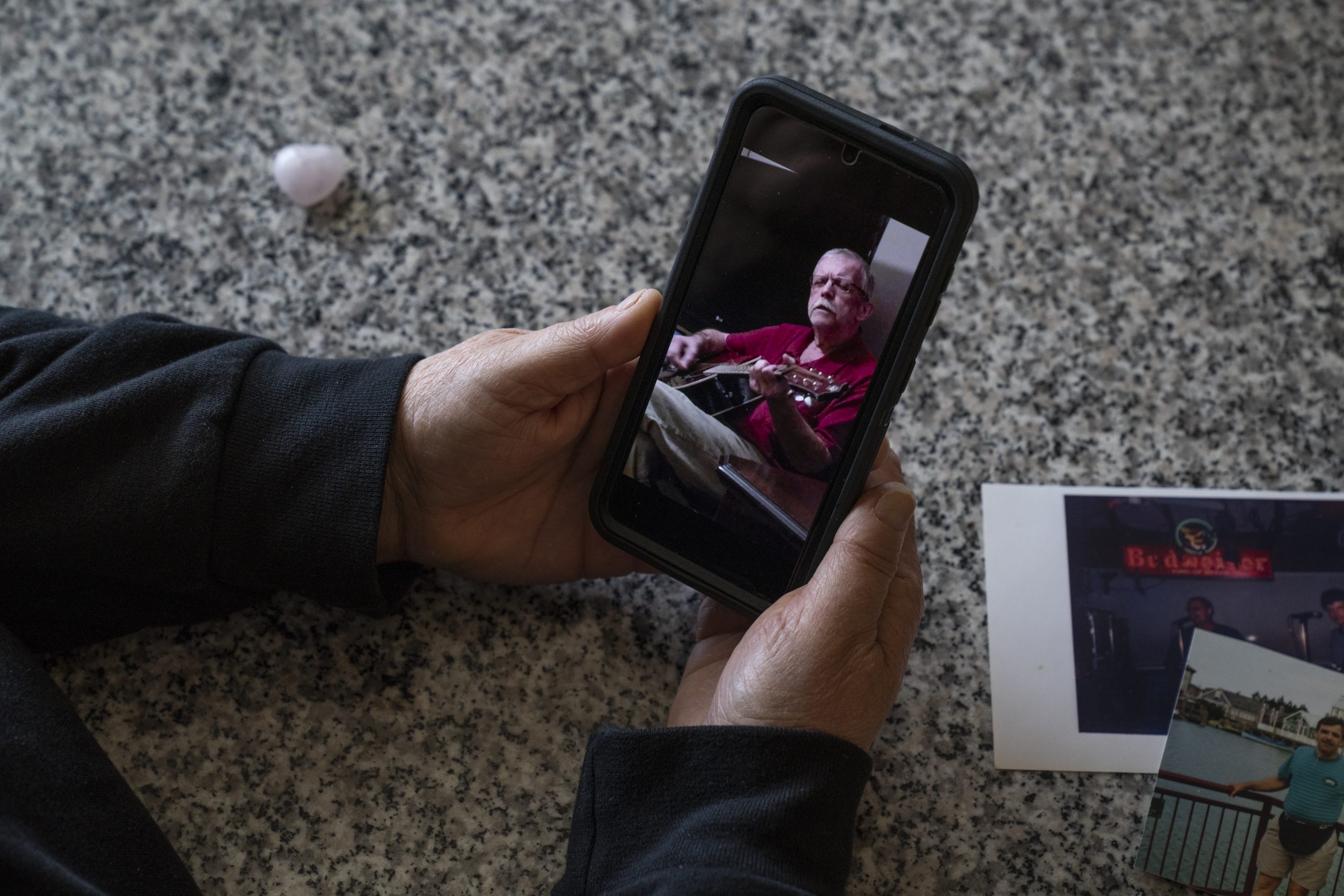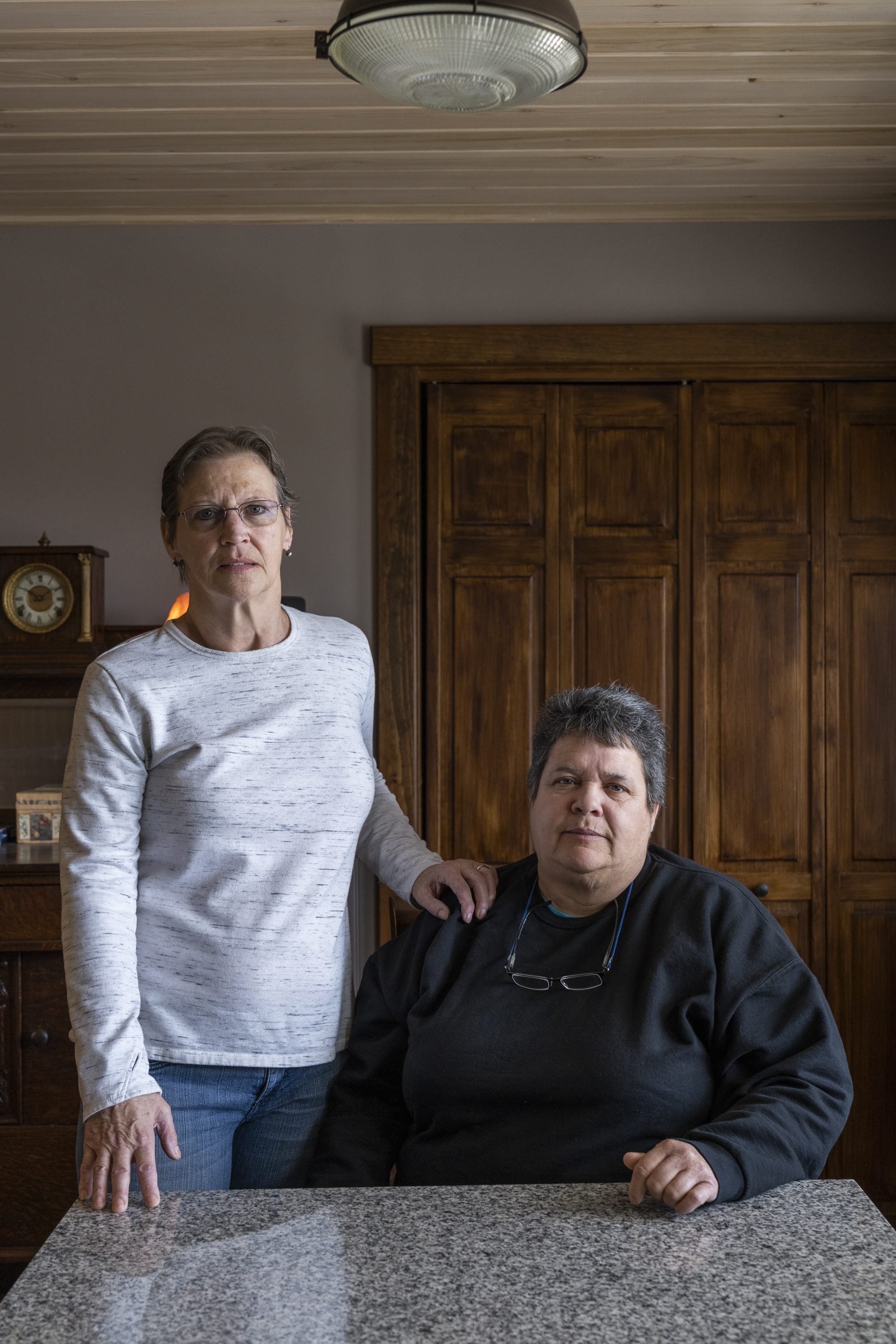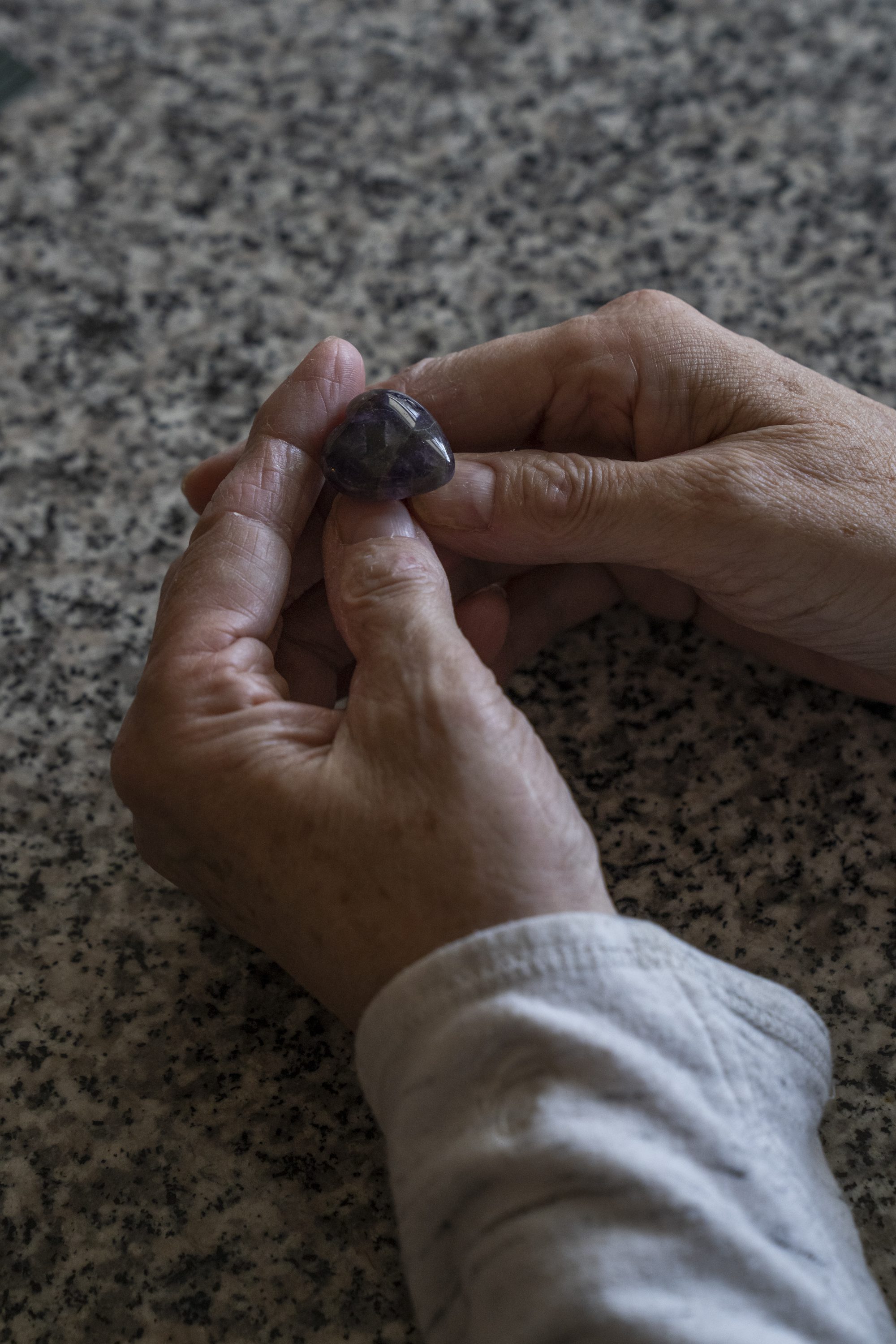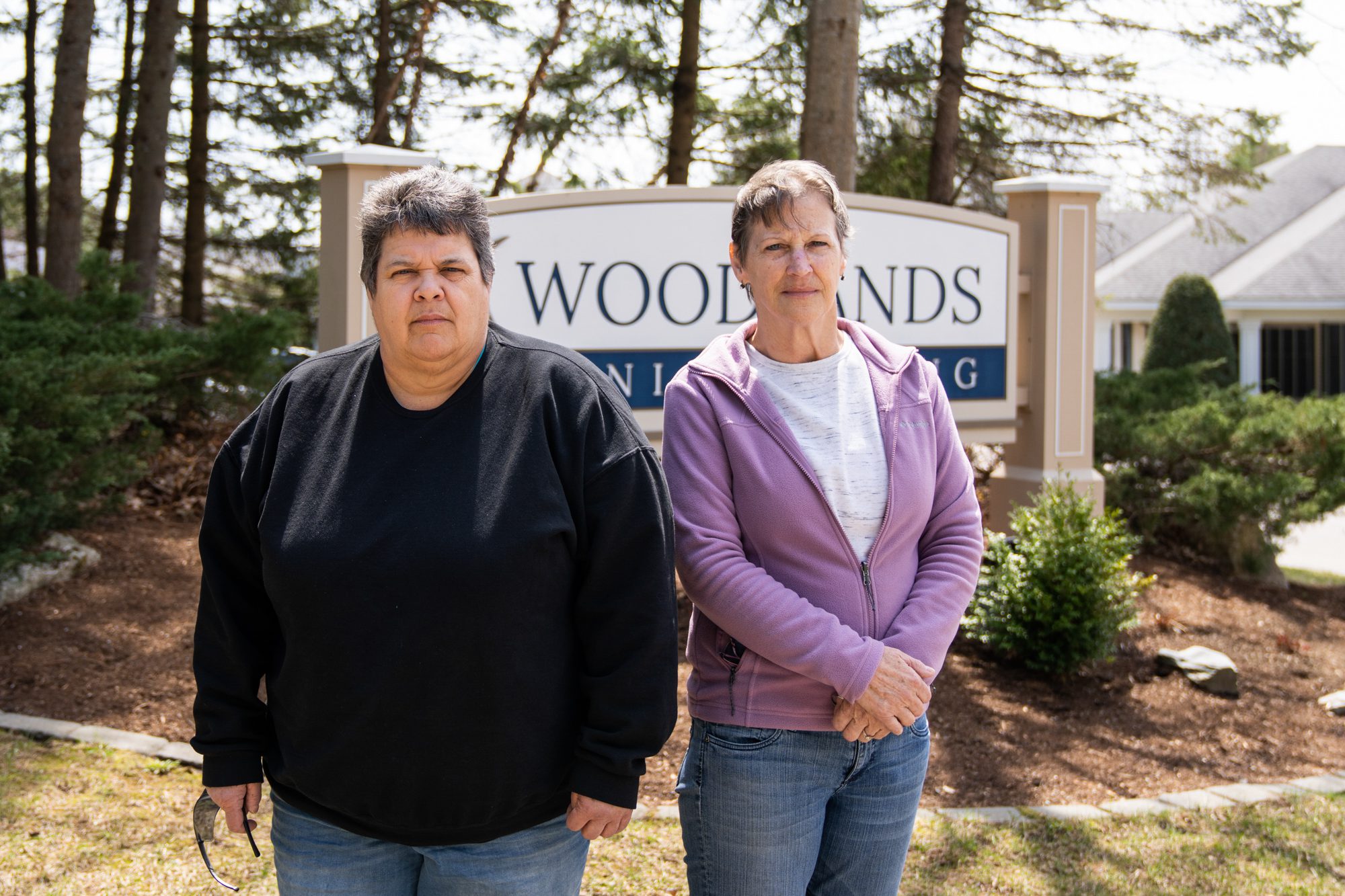In the mid-1990s, Maine’s lawmakers and health officials made a pivotal decision to reduce the state’s reliance on nursing homes, a move intended to redirect elderly residents toward “more homelike, less institutional” alternatives.
The policy change, enacted in 1993 amid a severe budget crunch, helped spark a dramatic transformation of the elder care system in Maine, where 21.7% of the population is 65 or older — the highest percentage in the country.
Between 1996 and 2022, the number of nursing home beds dropped by nearly 3,680, from a high of more than 10,000, sparing Maine the financial burden of subsidizing them. During the same period, the number of beds at what are known as residential care facilities almost doubled, jumping by more than 4,200. As a result, older Mainers and other residents with significant medical needs live in these homes. Residential care facilities in Maine resemble what are known generally as assisted living facilities.
Although the state considers residential care facilities to be “nonmedical institutions,” an investigation by The Maine Monitor and ProPublica found that these facilities are routinely called on to provide medical care to their residents — those suffering from advanced dementia or requiring medication management for conditions such as seizures and heart disease.
Maine’s standards for these facilities are more robust than those in some other states, long-term care advocates say. But given the significant shift of beds for seniors from nursing homes to residential care, advocates say that those regulations are inadequate and in urgent need of updating and tightening.
A review by the Monitor and ProPublica of state inspection records underscored concerns about how these facilities are regulated. State monitoring and investigation reports revealed that of the almost 700 violations issued from 2020 to 2022, roughly 200 involved “medications and treatments.” The analysis focused on citations at many of the state’s roughly 190 largest residential care facilities, called Level IV, which serve the largest number of people.
In May 2021, for instance, state inspectors found that one facility had administered morphine to the wrong resident. The mistake led to the resident being hospitalized and treated for a week in the intensive care unit.
Problems with medical care also showed up in other violation categories beyond the 200 related to medication and treatment. Another facility was cited with a resident’s rights violation in May 2022 for failing to get from the pharmacy a resident’s medication for cardiac issues, nicotine cessation, pain control and seizure activity for three days. The resident became agitated about not receiving the medications and went to the hospital at their family’s request over safety concerns.
These facilities “shouldn’t have it both ways,” said Eric Carlson, director of long-term services and support advocacy at Justice in Aging, a nonprofit legal advocacy group focused on ending poverty among seniors.
“You can’t on one hand say: ‘Oh, we’re an alternative to nursing facilities,’” and then when something bad happens say: “‘Well, we can’t be expected to have expertise on that stuff. We’re a social facility. We’re a nonmedical model,’” Carlson said.
While medical errors happen at even the most highly equipped facilities, Maine’s residential care facilities are not set up to handle the level of need they are currently seeing in residents, said Jess Maurer, executive director of Maine Council on Aging, a network of organizations focused on issues affecting the elderly. She said these facilities are grappling with the consequences of the state’s policy change.
“We’re pushing people with a higher level of need than should be in assisted living into assisted living facilities because there are no alternatives,” Maurer said.
According to a 2021 report by the Maine Health Care Association, which represents the state’s elder care facilities including nursing homes, the needs of residents in assisted housing, including residential care facilities, had increased 30% since 1998, and 47% of them suffered from dementia. By 2028, the number of Mainers over 65 is projected to increase about 45% over the decade prior. And 35,000 Mainers are projected to have Alzheimer’s in 2025.
The Maine Department of Health and Human Services, which oversees and licenses residential care facilities, declined to comment on the calls for tighter medical standards or on the violations cited by state inspectors.
But department spokesperson Jackie Farwell said the state is in the middle of a “major long-term care reform effort” aimed at filling the gaps in the state’s elder care system. Within the next fiscal year, the department’s statutory review of assisted housing programs is expected to “lead to the adoption of updated rules relating to the operation of” residential care facilities, among other things. She declined to elaborate whether the updated rules could include tighter medical standards.
Brenda Gallant, Maine’s long-term care ombudsman, who is empowered by the state to receive complaints from elder care residents and investigate their facilities, said the department’s effort could offer an opportunity to review the medical standards for residential care facilities.
“It is the right time to take a look at who we are serving and what regulatory changes need to be made based on resident need,” Gallant said.
Martin Hunt was a highly intelligent, meticulous man who enjoyed tinkering and creating all kinds of contraptions. He fashioned cup holders to his cane, assembled a guitar and built a wooden, collapsible rolling grocery cart. He designed 3D floor plans for a house on a piece of property that one of his sisters, Tania McIntyre, owns in Dedham, Maine.

But McIntyre and her older sister, Melody Leavitt, witnessed Hunt’s dementia erode his mind since he suffered a stroke in 2020. As the 68-year-old’s condition worsened, they helped him move into Woodlands Senior Living of Brewer, 10 miles from Leavitt’s house.
Within a week, the sisters regretted the move, appalled by the quality of care that Hunt was receiving. For instance, he took about 20 medications every day for a number of ailments in addition to dementia — heart conditions, lung disease, hypertension, among others — and Woodlands’ employees made a mistake when administering them, according to the facility’s daily care notes. More broadly, the sisters worried that he was being overlooked, and that staff did not take his complaints about pain seriously.
A couple months after he moved in, Leavitt confronted Kathleen Olsen, the facility’s administrator, about the overall quality of care. She said she was floored when Olsen told her that Woodlands is not a medical facility.
Matthew Walters, one of the owners of the Woodlands Senior Living, which operates residential care facilities in nine communities throughout Maine, including the one in Brewer, told the news organizations that he had spoken with Olsen and that she did not recall her conversation with Leavitt. But Walters echoed her point: “She’s right. We’re not a medical facility. By definition, we’re a private nonmedical institution,” he told the Monitor and ProPublica.
Medical facilities, such as nursing homes, are required to provide daily nursing care for injured, disabled or sick people who can only be served in a nursing facility, whereas nonmedical facilities are only required to help residents coordinate and gain access to medical care, said Farwell, the DHHS spokesperson.
All this is why the sisters began exploring options for relocating Hunt not long after his move to Woodlands. Convinced that he needed a higher level of care, they set up an assessment for him — a step required by the state before moving to a nursing home.
To qualify, Hunt needed to be evaluated as either requiring frequent nursing or other skilled care for a long list of medical conditions or needed to score high on a points system to show that he had severe cognitive or behavioral problems.
On the day of Hunt’s assessment in late November, conducted via a 10-minute phone call with a registered nurse, Leavitt was there in his room, listening in as he answered the assessor’s questions: Did he need help getting dressed? (No.) Did he eat by himself? (He gave a snarky answer: “When the food is edible.”)
At one point during the call, Hunt put the phone on speaker and placed it on his bed. When he went to pick it up later, he grabbed the TV remote instead and held it to his ear. He continued to speak into it until Leavitt walked over and replaced it with the phone.
Leavitt said the moment felt like yet another example of Hunt’s steady decline. “It was disheartening,” she said. “You’re watching him losing his mind.”
But the assessor wasn’t in Hunt’s room to witness the scene and eventually determined that Hunt’s needs weren’t acute enough to qualify for a nursing home placement.
Three decades ago, the state tightened the requirement for qualifying for a nursing home placement. The policy change reflected the state’s philosophical shift away from nursing homes and toward options that allowed Mainers to “age in place” at home or in less institutionalized settings for as long as possible.
But it was also a financial decision, aimed at reducing nursing home costs, which are covered by a mix of state and federal funds under MaineCare, the state’s version of Medicaid; the costs had doubled over five years and were the single largest component in the state’s Medicaid budget.
The rising costs meant that the state “finally had to admit that we could no longer” sustain the number of nursing home beds it had, according to a 1994 state plan from the Bureau of Elder and Adult Services, an agency under what is now the Department of Health and Human Services.
But the policy change received immediate pushback. Legal Services for the Elderly, a nonprofit, filed a class-action lawsuit to challenge the medical eligibility requirement, which the plaintiffs said made them no longer qualify for a nursing home placement.
Among the plaintiffs were a 78-year-old woman who had a mild seizure disorder and rapidly worsening Alzheimer’s; a 99-year-old woman who was prone to falls, was legally blind and almost deaf and needed help with dressing, bathing, toileting and hygiene; and a 92-year-old man who needed a catheter and paid privately for nursing home services for years until his savings ran out, according to the coverage in the Bangor Daily News at the time.
The following year, the Maine Health Care Association also issued a critical report, highlighting how the policy change was pushing people with a higher level of medical needs into residential care facilities. The situation, it wrote, was putting the pressure on these facilities to provide more medical care.
“Many of Maine’s residential care facilities are moving quickly down that path, being driven by circumstance and department pressure to medicalize their services,” the association wrote.
Under pressure, the state eased the medical eligibility requirement in 1996, taking Alzheimer’s and other dementias more into consideration in determining whether an individual qualifies for a nursing home placement. In light of the changes, the class-action lawsuit was dropped.
Despite that change, experts told the Monitor and ProPublica that Maine’s medical eligibility requirement for nursing homes remained among the strictest in the country, and nursing home beds have continued to disappear since 1996.
Residential care facilities are subject to state regulations, established in 1998, that hold them to much lower minimum staffing, nursing and physician requirements than for nursing homes. Their direct-care workers are allowed to manage twice as many residents as they are in nursing homes. A registered nurse has to make a visit only once a week to residential care facilities with 40 beds or more and even less frequently to smaller ones, while nursing homes are required to hire a director of nursing and have one nurse stationed at all times. And there is no requirement that doctors visit residents at these facilities, while nursing homes are required to have a medical director and make sure that every resident is visited by a doctor every two months.
Regulations of assisted living facilities vary greatly across the country, and experts say it is difficult to compare across states. Some states don’t have specific minimum staffing requirements like Maine does, requiring only “staffing sufficient to meet the needs” of residents.
But just because Maine has minimum staffing requirements doesn’t mean the standards are sufficient; resident needs have increased since they were established 25 years ago, said Lori Smetanka, executive director of the National Consumer Voice for Quality Long-Term Care, a nonprofit that advocates for elder care residents.
“When you have people with increasing needs, you have to ensure that those needs are being met,” she said. “There needs to be government oversight of that because in too many cases the facilities are falling short and people are experiencing real harm.”
Travis Brennan, a Maine-based attorney who handles medical malpractice claims for Berman & Simmons, said medication mistakes can signal other problems — they may indicate that employees are being rushed, aren’t trained properly or are disregarding their foundational training.
“When you have a medication error, it is symptomatic of the fact that a provider is taking a shortcut,” Brennan said.
From 2020 to 2022, state inspectors issued 18 citations for missing doses and medications, seven citations for wrong doses and two citations for medications given to the wrong residents at Level IV residential facilities, a ProPublica-Monitor analysis shows.
In October, for instance, state inspectors cited one facility for failing to promptly stock one liter of oxygen for a resident who suffered from “acute respiratory failure.” It took the facility seven days after receiving a doctor’s order to contact a pharmacy.
Smetanka said the state can address this problem by enhancing the required training, improving quality-assurance procedures, establishing medication management as a focus for oversight and looking at the penalties when these facilities make mistakes.
“More needs to be done in terms of oversight and accountability for ensuring that these mistakes are minimized as much as possible,” Smetanka said. “A medication error can be deadly for a resident. It could have very serious consequences. So this is not something to be taken lightly.”
Paula Banks, a geriatric social worker who has been licensed in Maine for 30 years and runs a geriatric consulting and care management firm, said the current staff ratios are not stringent enough, particularly at the residential care facilities housing residents with cognitive problems. Under the state’s medical standards, one direct-care worker is allowed to manage 30 residents overnight, but she said that’s not reasonable when the residents suffer from dementia and may not know what time it is. “It’s impossible — those ratios,” she said.
Angela Cole Westhoff, president and CEO of the Maine Health Care Association, wouldn’t weigh in on tightening medical standards for residential care facilities, but she said that regulations should reflect the difference between nursing homes and residential care facilities, which she said “provide varying levels of care.”
Hunt’s sisters, Leavitt and McIntyre, are quick to acknowledge that Hunt, a divorced father of three sons whom he hasn’t seen for years, could sometimes be a difficult person to be around. And they suspect that this caused his needs to be overlooked by Woodlands’ employees.


The facility care notes detail numerous run-ins with the employees in which Hunt was described as aggressive, rude and insulting. He allegedly called the employees names and yelled at the cook. And he clashed with the employees over his medications.
The sisters said Hunt had long been in charge of his own medications and didn’t trust the employees to handle his prescriptions correctly. He would ask them what they were giving him and get frustrated when they wouldn’t explain. When he got worked up, Leavitt said, the employees would ask if he was refusing the medication.
“He was just stubborn enough. They’d say that, and he’d go, ‘Well, I guess I am,’” Leavitt said.
“He was a challenging person to have in your care. I’m not going to make any bones about it,” McIntyre said.
“That being said, it was their job to take care of him,” Leavitt added. “In my opinion, they really didn’t.”
In December, Hunt did have a scare when the employees gave him medication for anxiety and sleeping problems instead of a painkiller, according to the facility care notes. The employees wrote in the facility care notes that he did not have any reactions, but they called his doctors for “advisement.”
With the sisters’ permission, Walters, one of Woodlands’ owners, discussed Hunt’s experience in detail with the Monitor and ProPublica. He acknowledged the medication mix-up but said Woodlands’ care notes did not document Hunt’s worsening dementia or increasing complaints about back pain. He said there was no significant change in Hunt’s condition that would have alerted the employees to a possible medical emergency, up until the day he was rushed to the emergency room.
“There’s no red flag that occurs anywhere,” Walters said.
He also said the employees tried their best, despite Hunt’s temperament, to care for him.
The employees “worked very hard throughout the entirety of Mr. Hunt’s residency to help make each day the best day possible for him and showed great care, consideration and compassion towards him in the face of persistent challenging and abusive behaviors,” Walters said.
He echoed what other Maine long-term care advocates and experts said: That there are residents in residential care facilities today who would have been in nursing homes 20 years ago.
“That doesn’t mean that those people that are in a residential care facility now shouldn’t be here and should be in a nursing home,” Walters said. “In some cases, it’s just the opposite. Those people would have been in a nursing home, but they’re equally or better served in this setting.”
According to Hunt’s sisters, that winter, Hunt began complaining that his back pain was becoming markedly worse. Around supper time on a weekend night in February, Leavitt got a call from a Woodlands employee about Hunt: He had been found unresponsive on the floor of his room. He looked pale, his lips were blue and emergency responders couldn’t get him to squeeze their hand. He was rushed to a nearby hospital.
The sisters braced for the worst, fearing that Hunt had suffered a second stroke in four years. “I just thought this is going to be the end of him,” McIntyre said.
When McIntyre arrived at the hospital, she initially heard good news: Hunt’s doctors had ruled out the stroke. McIntyre said her reaction was a visible and audible sigh of relief.
But then Hunt was soon moved to the intensive care unit after his doctors found a kidney bleed — it was near a part of his back where the sisters said he had complained about dramatically worsening back pain in the weeks before he went to the ER.
Hunt’s doctors discussed surgery options for him, but the sisters feared that they wouldn’t succeed and he would end up with him on a ventilator — which they knew he wouldn’t want. They opted for comfort care instead.
That night, nurses unhooked his heart monitor and gave Hunt a pump of morphine. Leavitt remembered the stress immediately disappearing from his face. When he woke up, he was starving and asked for a cheeseburger, fries and a hot coffee. The three siblings had their best visit in months.
“You just had to wonder, was pain causing it all?” Leavitt said.
The next morning, as the sisters were walking back down the hospital hallway to visit him again, the doctor called and told them to hurry.
“We get in his room, and they said, ‘Martin, your sisters are here.’ And, within a couple of minutes, he took his last breath,” Leavitt said. “It’s like he waited for us or something.”


Leavitt, meanwhile, said she didn’t blame Woodlands for Hunt’s worsening dementia but held the facility responsible for not noticing the change in their brother’s dementia and pain levels that they say were obvious and for failing to take action to improve his care.
“If they’re going to allow people like my brother to be in their facility, they should be able to care for him,” Leavitt said. “That’s what our intent was: For him to be safe and be cared for when he needed help.”
Do you have a story about Maine’s long-term care homes? Share your story with The Maine Monitor through our form or email gro.r1751764440otino1751764440menia1751764440meht@1751764440tcatn1751764440oc1751764440.
Correction: This story originally referred imprecisely to a medication that residential care staff had incorrectly provided to Martin Hunt. He was given medication for anxiety and sleeping problems, not seizures.







